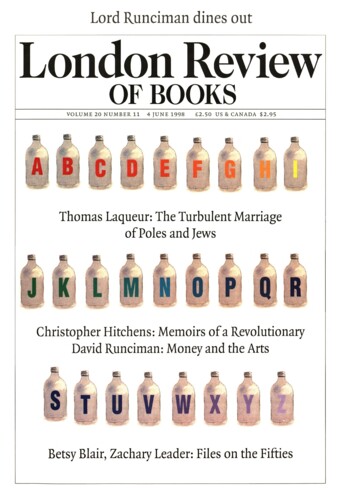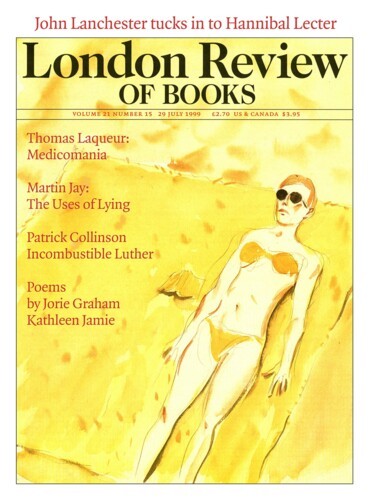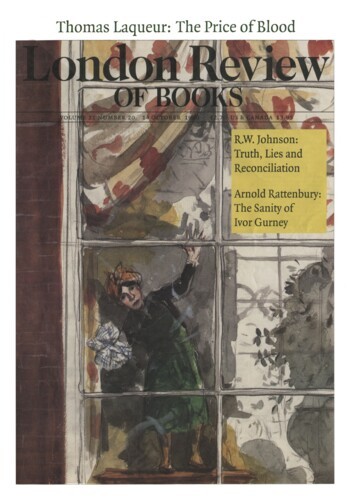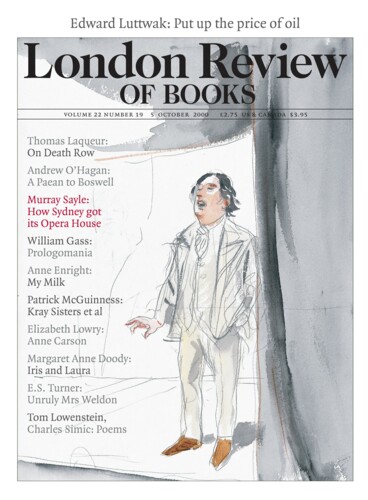The Old Country: the troublesome marriage of Poles and Jews
Thomas Laqueur, 4 June 1998
Both these books are about recovering and redeeming a past: the past of Dan Jacobson’s grandfather, Heshel Melamed, the rabbi of a community of Jews in the obscure Lithuanian village of Varniai (Vorna it probably would have been to him); Eva Hoffman’s past and the past of Bransk, a Polish shtetl 180 kilometres east of Warsaw, whose history – alternately dismal and cheering – she interpolates into that of Poles and Jews generally, from the Statute of Kalisz to the present. (The statute was signed by Prince Boleslaw the Pious in 1254 and launched the ‘official experiment in Polish-Jewish co-existence’ with a set of laws ‘that could serve as an exemplary statement of minority rights today’.) It is a past lost, soiled, distorted, devastated seemingly beyond comprehension, most obviously by the Holocaust but in any case by modernity, befogged in the ‘Talmudic wilds’ – the phrase is Osip Mandelstam’s, used admiringly by Jacobson.’‘




